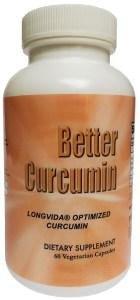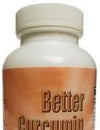Low grade inflammation and free radical damage are risk factors for most chronic conditions and dementia is no exemption.
Vascular risk factors, markers of inflammation and endothelial dysfunction predicted lower performance in several cognitive areas in a study which included 747 participants older than 50 years (Miralbell J, et al. 2013).
Examination of study participants with an average age of 63 years found that higher levels of the inflammatory marker hs-CRP was associated with worse performance in executive function (Wersching H, et al. 2010).
The low grade inflammation was associated with cerebral microstructural disintegration. Even if you don’t know exactly what cerebral microstructural disintegration is, it does not sound good to me. It’s probably something you don’t want to get.
High level of hs-CRP can even be used to identify individuals at an increased risk for cognitive decline because it predicted poorer memory 12 years later in elderly women (Komulainen P, et al. 2007).
Oxidative stress also plays a role in chronic conditions. Advanced glycation end products and lipid peroxidation are markers of disease progression for both diabetes and Alzheimer’s disease (Reddy VP, et al. 2009).
Autopsies have shown increased lipid peroxidation as well as protein, DNA and RNA oxidation in multiple brain regions establishing oxidative damage as an early event in Alzheimer’s disease (Markesbery WR, Lovell MA, 2007).
For these reasons using effective antioxidants and plant derived anti-inflammatory substances make a lot of sense.
As an antioxidant I can’t think of anything more effective than the antioxidant glutathione which the body makes, but makes less of as we get older. You just have to be sure to take it in a form which works.
A plant derived anti-inflammatory substance with a lot of research behind it is curcumin. This would also be beneficial, as long as you take it in a form which is well absorbed.
Effective S-Acetyl Glutathione

Glutathione is your primary defense against aging, but regular glutathione is oxidized (destroyed in the stomache) and provides little value. S-Acetyl Glutathione is easily absorbed and provides protection.
Better Curcumin

Research has documented the many benefits of curcumin (found in turmeric spice), but regular curcumin is hard to absorb. Our formula improves the intake of this beneficial substance into the cells.








